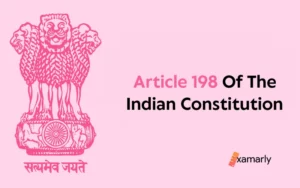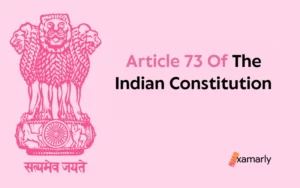The UPSC IAS Exam is conducted in three tiers- Prelims, Mains, and Interviews. After clearing the Prelims, candidates need to choose an optional subject for their Mains Examination. Malayalam optional for UPSC is one of the prominent choice and could be a key to unlock the India’s toughest exam for those who are well acquainted with the language.
- Introduction To The Subject
- Comparison/Similarity With Other Optional Papers
- Advantages Of Malayalam Optional For UPSC
- Mastering The Subject From Basics
- Importance Of Academic Background
- What Time Duration Is Required For Preparation?
- Overlapping Syllabus With GS
- Help With Essay Paper
- Help in Interview
- Disadvantages Of Malayalam Optional For UPSC
- Recent Toppers Of UPSC CSE With Malayalam Literature Optional
- Data/Scores Available
- Malayalam Literature Syllabus – Civil Services Mains Exam UPSC
- MALAYALAM PAPER-I
- Section-A
- Unit 2-Linguistic features of :
- Unit 3-Standardisation of Malayalam:
- Section-B
- Literary History
- Unit-4 Ancient and Medieval Literature:
- Unit 5- Modern Literature-Poerty:
- Unit 6- Modern Literature-Prose:
- PAPER-II
- Standard References
- Conclusion
- FAQs
Introduction To The Subject
Malayalam Literature is one of the popular subjects opted for UPSC Civil Services Mains Exam Optional Subject by Malayali candidates who know the language. Union of India has recognized 22 official languages of India and Malayalam is one of them. The Malayalam language is unique to Kerala and is derived from Proto-Dravidian, Tamil, and Sanskrit.
Malayalam is spoken in areas of Tamil Nadu, Karnataka, and Kerala. The Lakshadweep islands and few territories under the administration of Pondicherry, also use this language. Malayalam and Tamil are quite similar to each other as both languages have the same root i.e. Dravidian family.
The Malayalam literature syllabus includes ancient and medieval literature, standardization of grammar, and the history of the language. Important works of prose and poetry from all periods are covered. The subject carries 500 marks in the UPSC Mains. Candidates can take up the subject as an optional subject if they are interested in exploring Malayalam’s rich history and literature.
Comparison/Similarity With Other Optional Papers
- Malayalam literature does not overlap with the General Studies syllabus in either the Prelims or the Mains, unlike some of the optional subjects like History, Political Science & International Relations, Sociology, Geography, Economics, and Public Administration.
- Like Hindi, English, Tamil, and other Literature subjects Malayalam Literature also have a small syllabus compared to other Optional subjects.
- There are fewer resources and references available for Malayalam Literature, unlike English, and Hindi Literature.
- Most people are not much familiar with the Malayalam language unlike Hindi and English which are widely spoken languages.
Advantages Of Malayalam Optional For UPSC
Malayalam optional with UPSC is indeed a right choice to make if you are well aware of its advantages. Let get to know some right away.
- It contains a laid-out and concise syllabus.
- The competition is much lower because fewer people take this subject as optional.
- This syllabus does not change frequently so candidates do not need to update themselves from time to time.
- If Malayalam had been one of your school courses, you would have already read most of the stories and poems on the syllabus. This would cut down on how long it takes you to finish the syllabus, leaving you more time for GS and revision.
Mastering The Subject From Basics
Here are some tips to prepare for the subject-
- A candidate can perform well in this subject with extensive reading and a thorough awareness of the language’s traits, history, etc.
- Through analyzing the work critically, comprehending the story’s finer details, and gaining a thorough comprehension of the characters’ various complexities a candidate can master the subject.
- To score well on the Malayalam paper, aptitude and speed are important. Developing an aptitude for literature and improving your writing speed are important. Whether it’s a story, poem, or essay, you’ll need to have a solid command of the language and a good imagination.
- You can study the past years’ question papers to get a better idea of what the exam will entail. This is an ideal way to get a feel for the exam pattern and prioritize topics. It will also help you understand how the questions are asked in the exam. This will help you score maximum marks in the optional section.
Importance Of Academic Background
An excellent academic background is critical for UPSC examinations. The UPSC is looking for individuals with strong logical minds and the ability to assimilate multiple viewpoints. Candidates must be able to present a 360-degree view of any situation, draw on multiple sources, and formulate informed opinions.
You are free to choose your optional subject according to your interest. UPSC does not demand any specific educational background to choose an optional subject. If you know and are habitual and fluent in the Malayalam language because the syllabus of Malayalam literature includes poems, probes, stories, history, etc. Having a good command of the language will help you a better understanding of the subject and will help you in performing well in the examination.
What Time Duration Is Required For Preparation?
To prepare for the UPSC Malayalam mains exam, you need to spend a minimum of 8 hours per day. You should start your preparation about three months before the actual exam date. The syllabus of the exam is divided into two parts: Paper I and Paper II. Paper I consists of linguistic features, the early phase of the Malayalam language, standardization, literary history, and ancient and medieval literature. Paper II involves the critical reading of prescribed texts.
The syllabus for the UPSC Malayalam exam is well-defined and concise. The syllabus for Malayalam is also fairly easy to learn, as most stories and poems are already familiar to you from your school days, this means that you will be able to complete the syllabus in 3-4 months.
Overlapping Syllabus With GS
Some Optional subjects overlap with other GS papers, but the syllabus of the Malayalam Literature does not overlap with General Studies.
Help With Essay Paper
Although the ability to write well is a lovely blend of talent and art, essay writing for the Civil Services Examination requires something more. You need to be well-versed in current knowledge and facts and possess the capacity to write concisely and coherently for three exhausting hours. Perhaps the goal of the UPSC essay test is to ensure that the candidates who are chosen have strong writing abilities.
Because the main examination assesses the candidate’s language proficiency as well as her capacity for understanding and critical abilities, as well as the degree of her integrated thinking, assimilation of ideas, and clarity of expression.
The essay paper is a challenging one and requires a high level of writing speed. It also demands good command of the language and a flair for literature. Only when you are proficient in a given language you can think clearly. If you have a good command of the Malayalam language you can use your thoughts and can phrase sentences free of grammatical mistakes which will help you to score decent marks on the paper.
Help in Interview
If you want to score high in the UPSC interview, you can opt for Malayalam as an optional language. The language is easy to understand and speak. However, it is imperative to have a good level of aptitude in this language. You should be able to write an answer in this language in an appropriate manner.
Malayalam is a highly-understood language, and students who can speak it can make a good impression on the panel. If you have proficiency in the language you will be able to answer the panel confidently this will help the interview panel gauge a candidate’s general awareness and personality.
Disadvantages Of Malayalam Optional For UPSC
There are some advantages as well as disadvantages to choosing Malayalam as an optional subject, some of the disadvantages are listed below-
- This is regarded as low scoring since many of the factors are subjective in this context.
- There isn’t much coaching offered for this subject.
- Malayalam Literature does not overlap with General Studies.
- There are not many resources and references available for the subject.
Recent Toppers Of UPSC CSE With Malayalam Literature Optional
Candidates who are familiar with the language are preferring Malayalam as an optional. Renu Raj, who chose Malayalam Literature as an elective, earned the second-best overall ranking in India in the 2014 UPSC civil services examination.
The below table shows the recent toppers of the UPSC CSE Exam with Malayalam Literature Optional:
| Name | Year | Rank |
| Shreedhanaya Suresh | 2018 | 410 |
| Shreelakshmi R | 2018 | 29 |
| Satish B Krishnan | 2017 | 125 |
| Renu Raj | 2014 | 02 |
| Haritha V Kumar | 2012 | 01 |
| Arvind Menon | 2011 | 201 |
Data/Scores Available
The Malayalam language is comparatively easier to learn and understand, and it has become a popular choice amongst students across the country. Today, 11 Kerala candidates have cleared the UPSC civil service examination with Malayalam as their optional subject. This development has raised a great deal of interest in the general public. It has led to numerous discussions and webinars, and some people have even advocated for writing the civil service examination in this language.
The below table shows the candidates who opted for Malayalam Literature as an optional subject and its success rate:
| Year | Candidates Appeared | Candidates Recommended | success Rate |
| 2017 | 111 | 08 | 7.2 |
| 2016 | 67 | 05 | 7.5 |
| 2014 | 69 | 06 | 8.7 |
Malayalam Literature Syllabus – Civil Services Mains Exam UPSC
The Syllabus of the Standard References in Malayalam for the UPSC Mains examination is based on several parameters, including the quality of the information delivery, student-friendly presentation, and two-way utility. This syllabus is designed to be an academic resource as well as a competitive guide. The syllabus is aligned with the syllabus of various state boards as well as central exams.
The optional subject for UPSC Civil Service Mains Exam offers two papers each carries of 250 marks with a total of 500 marks
MALAYALAM PAPER-I
Section-A
Unit 1-Early phase of Malayalam Language:
1.1 Various theories: origin from proto-Dravidian, Tamil, and Sanskrit.
1.2 Relation between Tamil and Malayalam: Six nayas of A.R. Rajarajavarma.
1.3 Pattu school definition, Ramacharitam, later pattu works-Niranam works, and Krishnagatha.
Unit 2-Linguistic features of :
2.1 Manipravalam-definition. Language of early manipravala works-Champu, Sandesakavya, Chandrotsava, minor works. Later Manipravala works-medieval Champu and Attakkatha.
2.2 Folklore-Southern and Northern ballads, Mappila songs.
2.3 Early Malayalam prose-Bhashakautaliyam, Brahmandapuranam, Attaprakaram, Kramadipika and Nambiantamil.
Unit 3-Standardisation of Malayalam:
3.1 Peculairities of the language of Pana, Kilippattu, and Tullal.
3.2 Contributions of indigenous and European missionaries to Malayalam.
3.3 Characteristics of contemporary Malayalam: Malayalam as the administrative language. Language of scientific and technical literature-media language.
Section-B
Literary History
Unit-4 Ancient and Medieval Literature:
4.1 Pattu-Ramacharitam, Niranam works and Krishnagatha.
4.2 Manipravalam-early and medieval manipravala works including attakkatha and champu.
4.3 Folk literature.
4.4 Kilippattu, Tullal and Mahakavya.
Unit 5- Modern Literature-Poerty:
5.1 Venmani poets and contemporaries.
5.2 The advent of Romanticism-Poerty of Kavitraya i.e., Asan, Ulloor and Vallathol
5.3 Poetry after Kavitraya.
5.4 Modernism in Malayalam poetry.
Unit 6- Modern Literature-Prose:
6.1 Drama
6.2 Novel
6.3 Short story
6.4 Biography, travelogue, essay, and criticism.
PAPER-II
This paper will require first-hand reading of the texts prescribed and is designed to test the candidate’s critical ability.
Section-A
Unit 1
1.1 Ramacharitam-Patalam 1.
1.2 Kannassaramayanam-Balakandam first 25 stanzas.
1.3 Unnunilisandesam-Purvabhagam 25 slokas including Prastavana
1.4 Mahabharatham Kilippattu-Bhishmaparvam.
Unit 2
2.1 Kumaran Asan-Chintavisthayaya Sita.
2.2 Vailoppilli-Kutiyozhikkal.
2.3 G. Sankara Kurup-Perunthachan.
2.4 N.V. Krishna Variar-Tivandiyile Pattu.
Unit 3
3.1 ONV -Bhumikkoru Charamagitam
3.2 Ayyappa Panicker-Kurukshetram.
3.3 Akkittam-Pandatha Messanthi
3.4 Attur Ravivarma-Megharupan.
Section-B
Unit 4
4.1 O. Chanthu Menon-Indulekha
4.2 Thakazhy-Chemmin.
4.3 O V Vijayan-Khasakkinte Ithihasam.
Unit 5
5.1 MT Vasudevan Nair-Vanaprastham (Collection).
5.2 N S Madhavan-Higvitta (Collection).
5.3 C J. Thomas-1128-il Crime 27.
Unit 6
6.1 Kuttikrishna Marar-Bharataparyatanam
6.2 M. K Sanu-Nakshatrangalute snehabhajanam
6.3 V.T. Bhattathirippad-Kannirum Kinavum.
You Might Also Like – Sanskrit As Optional In UPSC CSE 2023
Standard References
Good preparation can be done with the help of the right choice of references and books. A candidate must refer to the books which are beneficial for the enhancement of their ability of critical thinking. A list of books and references is given below.
- Malayalam magazine such as Bhashaposhini talks about contemporary issues in the Malayalam Literature world.
- Kairaliyude Katha – M. Krishna Pillai
- Malayala Sahithya Charithram – Kalaghattangalilude – Erumeli
- Civil Service exam Malayalam Optional paper I – Jobin S Kottaram
- Civil Service exam Malayalam Optional paper II – Jobin S Kottaram, Renu Raj, Aswathy.
Related – MALAYALAM LITERATURE Optional Question Papers (Paper -1 & 2)
Conclusion
According to recent trends, Malayalam Literature is becoming popular among UPSC aspirants as the Malayalam language is comparatively easier to learn and speak. The curriculum of Malayalam Literature is designed to check the ability of critical thinking of the aspirants.
FAQs
Can I take the UPSC Main Exam in Malayalam?
While taking UPSC, candidates may choose from English, Hindi, or any other regional language.
Is Malayalam literature a worthwhile UPSC optional?
Candidates who know the language are increasingly selecting Malayalam as an optional.






